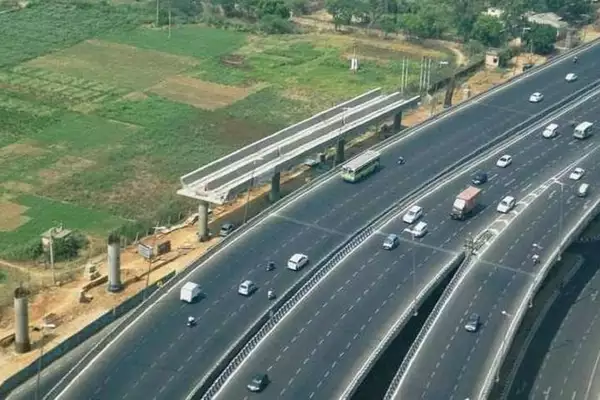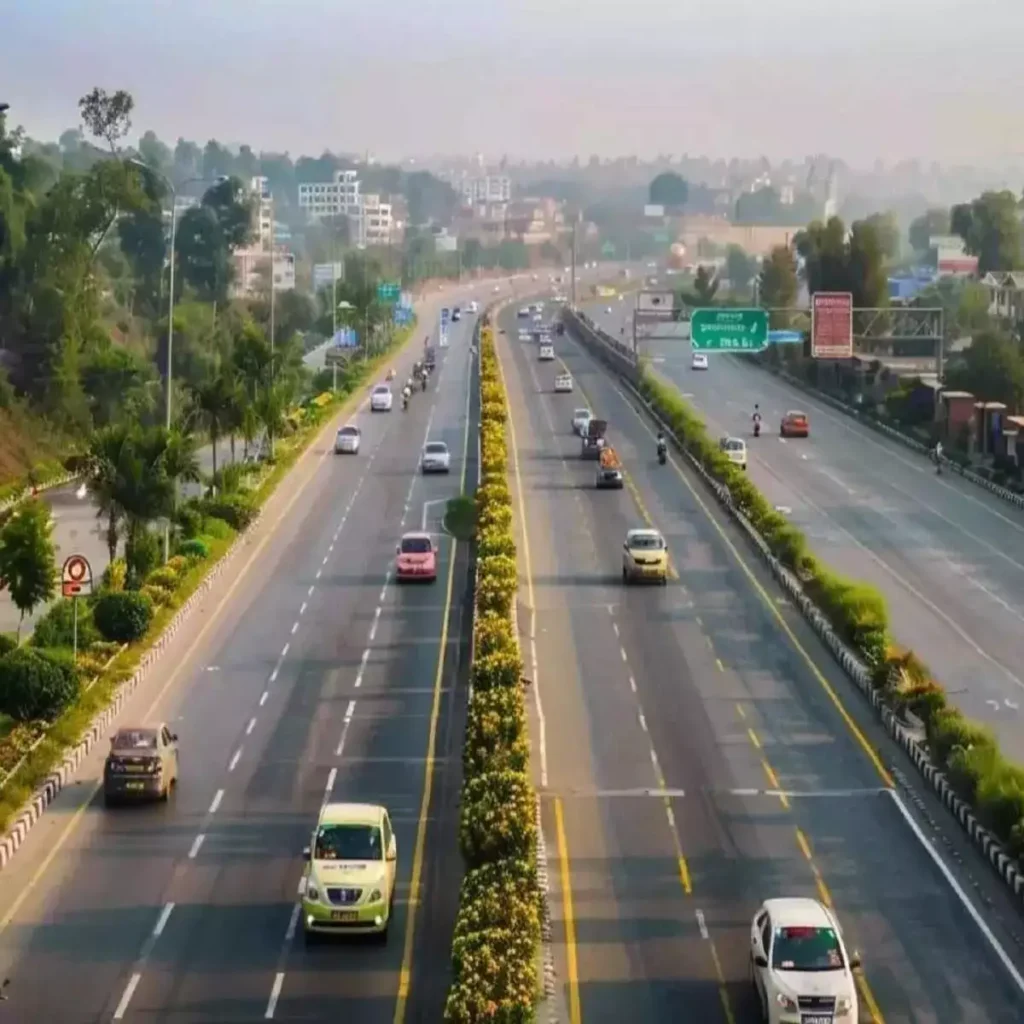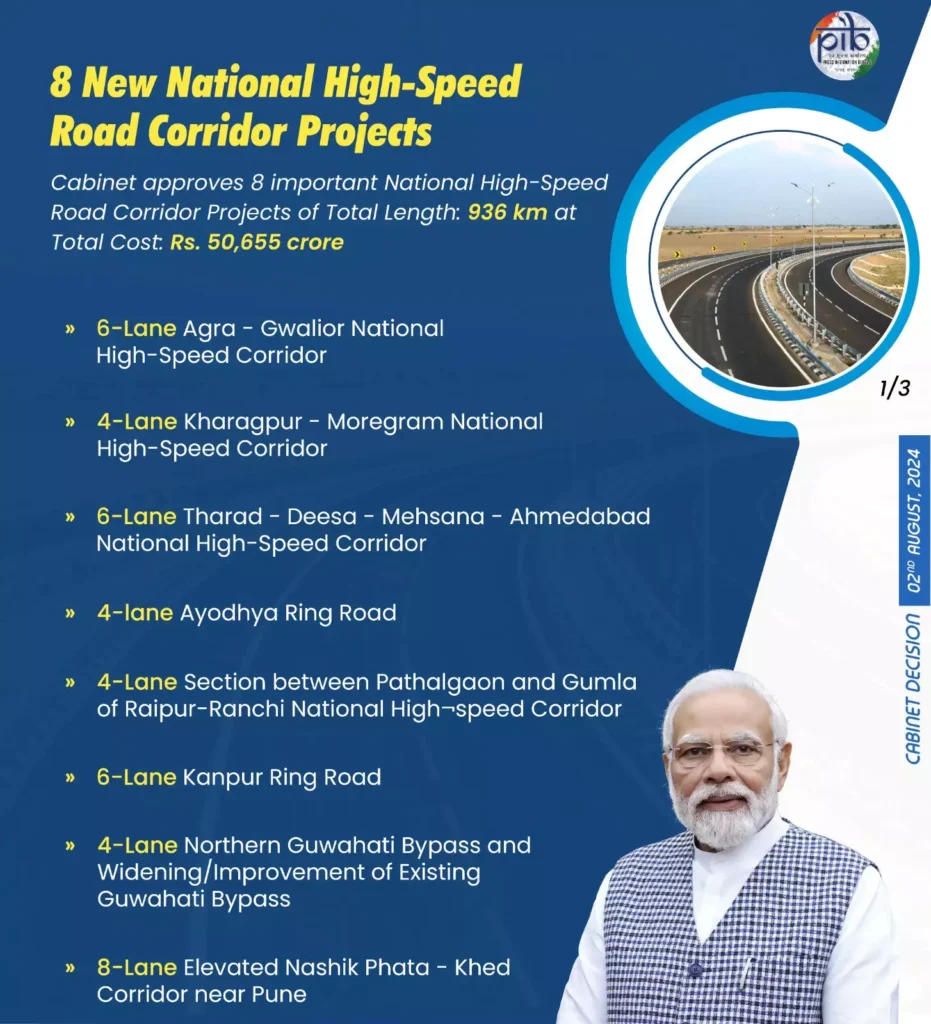Key 8 National High-Speed Road Corridor Projects spanning 936 km with a total capital cost of Rs. 50,655 crore have been approved.
Key 8 National High-Speed Road Corridor Projects:
- Agra-Gwalior (BOT)
- Kharagpur-Moregram (HAM)
- Tharad-Ahmedabad (BOT)
- Ayodhya Ring Road (HAM)
- Raipur-Ranchi (HAM)
- Kanpur Ring Road (EPC)
- Guwahati Ring Road (BOT)
- Nashik-Khed (BOT)
About Public Private Partnership (PPP):
- PPP involves a collaboration between government entities and private sector partners for public service or asset provision.
- It operates under a model where risks are allocated between the public and private entities, with the private sector managing investments or operations.
- Selection of private partners is through open competitive bidding, ensuring transparency.
Highways Development in India:
- The Corridor-Based Approach has led to the identification of 50,000 km of high-speed highway corridors based on GSTN and toll data.
- From 2014 to 2024, the length of National Highways has increased by 1.6 times, from 0.91 lakh km to 1.46 lakh km.
- Total capital investment in National Highways has escalated from Rs. 50,000 crores to Rs. 3.1 lakh crore.
Benefits:
- Logistics Efficiency: The Agra-Gwalior corridor reduces the distance between Agra and Gwalior by 7% and cuts travel time by 50%, enhancing freight movement and business operations.
- Boost to Tourism: The Tharad-Ahmedabad corridor enhances connectivity to key tourist sites in Rajasthan and Gujarat.
- Economic Impact: Every rupee spent on infrastructure potentially boosts GDP by 2.5-3 times.
- The development of these projects is expected to generate approximately 4.42 crore mandays of direct and indirect employment.
Ref: Source
| UPSC IAS Preparation Resources | |
| Current Affairs Analysis | Topperspedia |
| GS Shots | Simply Explained |
| Daily Flash Cards | Daily Quiz |
Frequently Asked Question:
What is the Open Market Sale Scheme (OMSS)?
The OMSS is a government initiative designed to enhance the supply of food grains, particularly wheat and rice, during lean seasons. It helps to moderate market prices, especially in regions with food deficits.
Who administers the OMSS?
The OMSS is administered by the Food Corporation of India (FCI).
How does the OMSS work?
Surplus stocks of wheat and rice are sold through e-auction on the National Commodity and Derivatives Exchange (NCDEX) platform at pre-determined prices.




